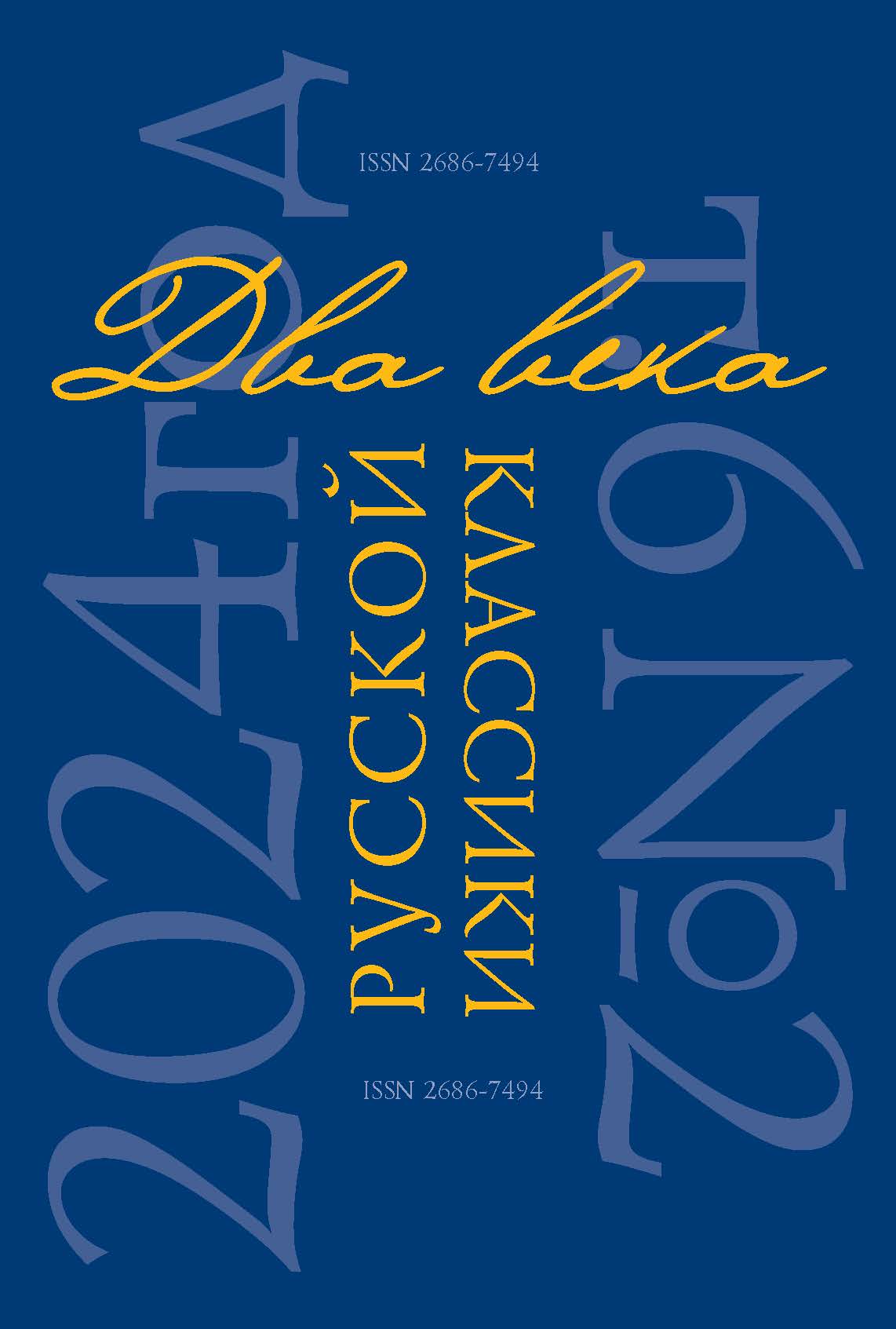Abstract:
Ideas about the genre boundaries of materials that have received the definition of “ego-documents” have already developed by now. However, it seems to be necessary to take into account that since the 17th century appear chronicle collections and historical compilations, in which both the selection of sources, their volume, and editorial processing (or lack of it) testify to the manifestation of a personal view of the events of the past. With the onset of Petrovsky time, this tradition was not interrupted. The article attempts to show on the material of the handwritten historical code of the first half of the 18th century what means could be used by the compiler, editor or scribe to express their own attitude to the past. An analysis of the corpus of news about the reign of Ivan the Terrible in this monument made it possible to discover that they not only left comments in the margins, but additions were made to the text of the source, and evaluative characteristics of the characters and their actions were added. The return to the topics that worried the compiler of the editor or scribe led to chronological “breaks” that violated the traditional composition of the historical code. All these techniques made it possible to fully manifest the personal principle in the monument of late chronicle writing, which gives grounds for considering it in a number of ego-documents.
References
Kagan, M. D. “Povest’ o tsare Ivane Vasil’eviche i kuptse Kharitone Belouline” [“The Tale of Tsar Ivan Vasilyevich and the Merchant Khariton Beloulin”]. Slovar’ knizhnikov i knizhnosti Drevnei Rusi [Dictionary of Scribes and Bookishness of Ancient Russia], issue 3: XVII v. [17th Century], part 3. St. Petersburg, Dmitrii Bulanin Publ., 1998, pp. 223–225. (In Russ.)
Lavrent’ev, A. V. Svod 1652 g. — pamiatnik russkogo letopisaniia XVII v. [Code of 1652 — a Monument of Russian Chronicle Writing of the 17th Century: PhD Thesis, Summary]. Moscow, 1984. 23 p. (In Russ.)
Lavrent’ev, A. V. “Spiski i redaktsii letopisnogo svoda 1652 g.” [“Lists and Editions of the Annals of 1652”]. Istochnikovedcheskie issledovaniia po istorii feodal’noi Rossii [Source Studies on the History of Feudal Russia]. Moscow, Institut Istorii SSSR Publ., 1981, pp. 61–82. (In Russ.)
Likhachev, D. S. Velikoe nasledie: Klassicheskie proizvedeniia literatury Drevnei Rusi [The Great Heritage: Classical Works of Literature of Ancient Russia]. Moscow, Sovremennik Publ., 1975. 366 p. (In Russ.)
Lobakova, I. A. Zhitie mitropolita Filippa: Issledovanie i teksty [The Life of Metropolitan Philip: Research and Texts]. St. Petersburg, Dmitrii Bulanin Publ., 2006. 306 p. (In Russ.)
Lobakova, I. A. “Zhitie mitropolita Filippa v sostave letopisno-khronograficheskikh svodov” [“The Life of Metropolitan Philip as Part of Chronicle-Chronographic Codes”]. Trudy Otdela drevnerusskoi literatury [Proceedings of the Department of Old Russian
Literature], vol. 52. St. Petersburg, Pushkin House Publ., 2001, pp. 657–667. (In Russ.)
Lobakova, I. A. “Strakh — zhestokost’ — nasilie — strakh: Ob ob’’asnenii postupkov Ivana Groznogo v literature XVI–XVII vv.” [“Fear — Cruelty — Violence — Fear: On the Explanation of the Actions of Ivan the Terrible in the Literature of the 16th–17th Centuries”]. Nekanonicheskaia estetika [Non-canonical Aesthetics], issue 8.
St. Petersburg, Moscow, OOO “Sam Poligrafist” Publ., 2021, pp. 41–49. (In Russ.)
Lobakova, I. A., Sapozhnikova, O.S. “Eshche raz o redaktsiiakh Zhitiia mitropolita Filippa: Nova li ‘neizvestnaia prezhde’ redaktsiia pamiatnika” [“Once Again about the Editions of the Life of Metropolitan Philip: Is the ‘Previously Unknown’ Edition of the Monument New?”]. Ocherki feodal’noi Rossii [Essays on Feudal Russia], issue 21. Moscow, St. Petersburg, Al’ians-Arkheo Publ., 2020, pp. 236–299. (In Russ.)
Nasonov, A. N. Istoriia russkogo letopisaniia XI – nachala XVIII veka [The History of Russian Chronicle Writing in the 11th – Early 18th Centuries]. Moscow, Nauka Publ., 1969. 556 p. (In Russ.)
Pavlov, A. P. “Evoliutsiia gosudareva dvora v 60-kh – nachale 80-kh gg. XVI v.” [“The Evolution of the Sovereign’s Court in the 60s – Early 80s of 16th Century”]. Praviashchaia elita Russkogo gosudarstva IX – nachala XVIII v.: Ocherki istorii [The Ruling Elite of the Russian State in the 9th – Early 18th Centuries: Essays on History]. Petersburg, Dmitrii Bulanin Publ., 2006, pp. 217–227. (In Russ.)
Razumova, I. A. “Ot ego-dokumenta k ‘literaturnomu’ faktu” [“From Ego-Document to ‘Literary’ Fact”]. Slovesnost’ i istoriia, no. 2, 2020, pp. 156–181. (In Russ.)
Sapozhnikova, O. S. “ʽTsaritsu Anastasiiu, vami upodobliaemuiu Evdokse’: Ob odnom upodoblenii v krugu Ivana Groznogo” [“ʽQueen Anastasia, you Liken to Eudoxa’: About
One Likening in the Circle of Ivan the Terrible”]. Aktual’nye problemy otechestvennoi istorii, istochnikovedeniia i arkheografii: K 90-letiiu N. N. Pokrovskogo [Actual Problems of National History, Source Studies and Archeography: On the 90th Anniversary of N. Pokrovsky]. Novosibirsk, Institute of History of Siberian Branch of RAS Publ., 2020, pp. 144–162. (In Russ.)









